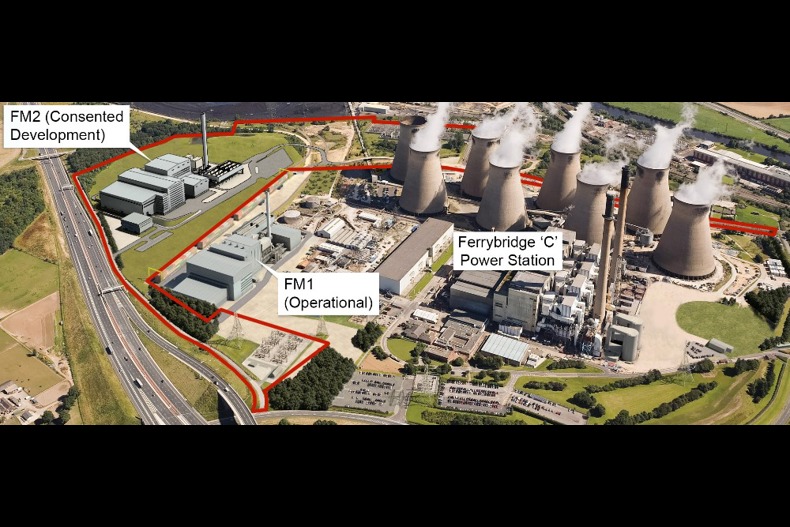
Multifuel Energy Ltd (MEL) has today welcomed the Secretary of State’s decision to grant planning consent for the Ferrybridge Multifuel 2 (FM2) project in West Yorkshire.
MEL is a 50:50 joint venture project between SSE and Wheelabrator Technologies Inc. MEL’s FM2 project will process up to 675,000 tonnes of waste derived fuels from various sources of municipal solid waste, commercial and industrial waste each year to produce around 70 MW of electricity, enough to power around 160,000 homes.* The project will be located on land next to the newly constructed Ferrybridge Multifuel 1 (FM1) project, which entered commercial operations earlier this year.
The planning consent is the culmination of significant consultation and engagement with local residents, community organisations, elected representatives and government agencies. The FM2 project represents a further £300 million investment by MEL and is expected to bring similar employment and local economic benefits to those generated by the construction of FM1, including:
• In excess of 500 construction jobs;
• Around 40 new full time operational jobs;
• A boost to the local economy through supply opportunities worth at least £10 million over the three year construction phase.
Tom Maillet, Director of Engineering and Operations for Multifuel Energy Ltd. said: “We are delighted that the Secretary of State has made the decision to grant planning permission for the Ferrybridge Multifuel 2 project. We believe that the Multifuel 1 project, which is fully operational, and the Multifuel 2 project can make a positive, low carbon contribution to the UK’s electricity supply and help to reduce the amount of waste sent to landfill. We believe that these projects represent the next generation of power generation at the Ferrybridge site and will help to generate important economic benefits for the local area. Following a final investment decision, construction is expected to begin in 2016.”
Engagement with local stakeholders, community groups and businesses will continue as the plans for construction progress. Further announcements on which company has been selected for the EPC contract will be made in due course.
* Based on the industry average annual household consumption of 3,300 KWh of electricity and using a base load of circa 70MW net export capacity utilized for 8000 hours per annum.

